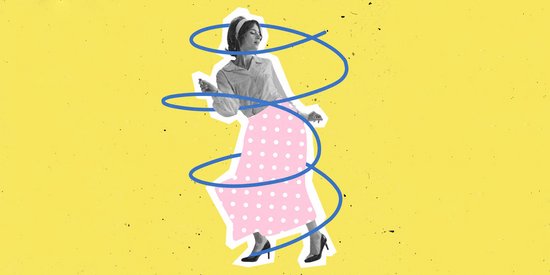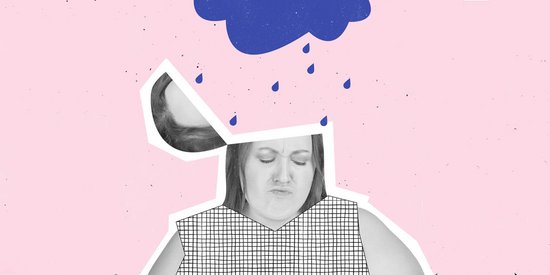I imagine that before you said, "I tried everything," you said to yourself "I'm sick of this!"
Today, almost systematically, menopause = HRT (Hormone Replacement Therapy). However, this success was shattered in 2002, after a study by the Women's Health Initiative (WHI) revealed a real health scandal. This US$625 million study, funded by the pharmaceutical industry, was supposed to show the preventive benefits of hormone therapy. This was a stroke of bad luck, as clinical trials have shown that the opposite applies.
For years, women had only one alternative to the different symptoms of menopause…This is despite the fact that the list of complications that could be linked to taking hormone replacement therapy (HRT) is long. Too long. For France alone, 159 million euros of HRT have been prescribed. The worst part of it all? Healthy women who were prescribed HRT, purely for purposes of prevention!
Hormonal treatment still in vogue!
Nowadays, HRT continues to be prescribed, since in the absence of what it can bring about, it considerably improves the daily life of some women. It's very simple, most doctors don't offer anything else to help postmenopausal women, and for good reason, the answer as to what the solution is, remains very abstract. However, even if HRT is widely prescribed, the use of it is not a step without consequences, which must be taken seriously, knowing that today, hormonal treatments constitute the treatment of reference.
There are many contraindications
In 2022, few specialists and general practitioners offer alternatives to hormonal treatment. But, do they exist, or are they all what we call "placebos"? What are the real consequences of these treatments in the long term for women?
So many questions, to which our editor for Womensdestiny tried to find answers, by following all the doctors around the globe, accompanied by official sources, including American, British, Australian and Canadian studies. But the facts remain. So, let's go back to basics.
To help you understand this entire article, we started from the source in 1991, when the U.S. National Institutes of Health (NIH) launched the Women's Health Initiative (WHI) which consisted of a set of studies carried out in 40 centers in the USA, relating to postmenopausal women in good health. This has revolutionized the world of women so much that it has created confusion, especially throughout Europe... Leaving women without solutions, but informed of the risk incurred... This is already progress!
Breast cancer; a known and recognized risk
How could one be completely at peace by taking artificial hormones? As explained above, in the American study, published in the years 2000-2010, the WHI (Women Health Initiative), questioned everything. There were to be two main studies which demonstrated that HRT is indeed recognized to be a factor risk of breast cancer.
The first “American” study dates from the early 2000s, where paradoxically it proved that HRT had a beneficial effect on climacteric disorders (hot flashes) but that it increased the risk of developing breast cancer.
As for the second study, this time “British”, the Million women study of 2003, it reveals results similar to those of the American study…
Then there was a break, and we then had to wait until 2015 for a new interest in HRT, this time with a Finnish observational study of 300,000 women which showed a possible increase in stroke mortality in women subjected to hormonal treatment. Yes, it's not just breast cancer, the risk of having a stroke is also part of the results of this treatment.
Can you keep up ladies? Then let’s continue!
In September 2017, a new analysis by the WHI left some doctors and women skeptical. The study was based on monitoring women for 18 years, who had taken estrogen and progesterone for five years, or estrogen alone for seven years. It demonstrated that there was no difference in all-cause mortality, cardiovascular mortality and cancer mortality between women taking hormone treatment and women receiving placebos.
Two years later, things continued. A study published in August 2019 by The Lancet affirms that these treatments could increase the risk of developing breast cancer and affirms it loud and clear with multiple arguments and supporting evidence.
What exactly are all these numbers?
Attention ladies, the summary of the figures announced by the official sources will give you goosebumps.
In Western countries, around 20 million breast cancers have been diagnosed since 1990, of which around 1 million are thought to have been caused by the use of HRT. However, the figures remain telling, all the more so, because they are supported by a large-scale study on a big cross section of women, and cannot be ignored.
An INSERM study conducted in 2016, also suggests that more than half of breast cancers that appear after menopause are attributable to behavioral factors: body mass index, alcohol consumption, diet or use of hormone treatment for menopause. This type of study does not sound the death knell for hormonal treatments, but provides certain elements, in order to better study their benefit/risk ratio. Because it is very obvious that faced with all the more or less disabling symptoms from one woman to another, our doctors resort to HRT.
Are we progressing?
Fortunately, progress regarding the use of specific hormones was made in 2019 and 2020. They have reduced the risk of developing breast cancer. Unfortunately, to this day, the risks of thrombosis (formation of clots in the veins) are still present.
They can be avoided by taking estrogens according to a very specific mode of administration, where natural estrogens must be favored, derivatives of 17-beta-estradiol, which is the molecule that the human body manufactures, and natural progesterone or its closest derivatives, such as dydrogesterone. And despite some advances, more synthetic progesterones, more powerful in terms of action, are still seen, because they increase the risk of breast cancer a little more, so back to the starting point of our article!
Well, we are going around in circles! We advance on one side to retreat on the other, and women are always at the same point,while certain multinational pharmaceutical companies always return to the juicy vein of menopausal replacement hormones.
Did you say bioidentical replacement hormone?
In order not to confuse you, we have also focused on treatments and their excesses and on the entrapments (or not), of bio-identical hormones...
The so-called bio-identical hormones are actually semi-synthetic hormones, extracted from plants... or non-ORGANIC. It is just a decoy, it is, purely and simply, a marketing term.
However, in 2002, the results of a study by the Women's Health Initiative (WHI), the first major clinical study on hormone replacement therapy, cast a chill, because they showed that this treatment increased the risk of breast cancer, blood clots and strokes. And to this is added, as if by chance, endometrial cancer, which has been on the rise again since 2004, the bio-identical scandal... Women have used more bio-identical estrogens in cream and the frequency of endometrial cancer has increased dramatically.
The problem is the remedy
Do we live in a democracy or a lobbycracy? Anyway, an industry has been built around the menopause and many are making money off the backs of women, and of course, there would be almost no point in changing that… In the meantime, women still suffer from the symptoms of menopause. The North American Menopause Society and other learned societies agree, that: although we have an idea of the average amounts of hormones that work, menopause treatment must be adapted to each woman, because not all will react to it in the same way.
Yes, it's a lottery, ladies!








